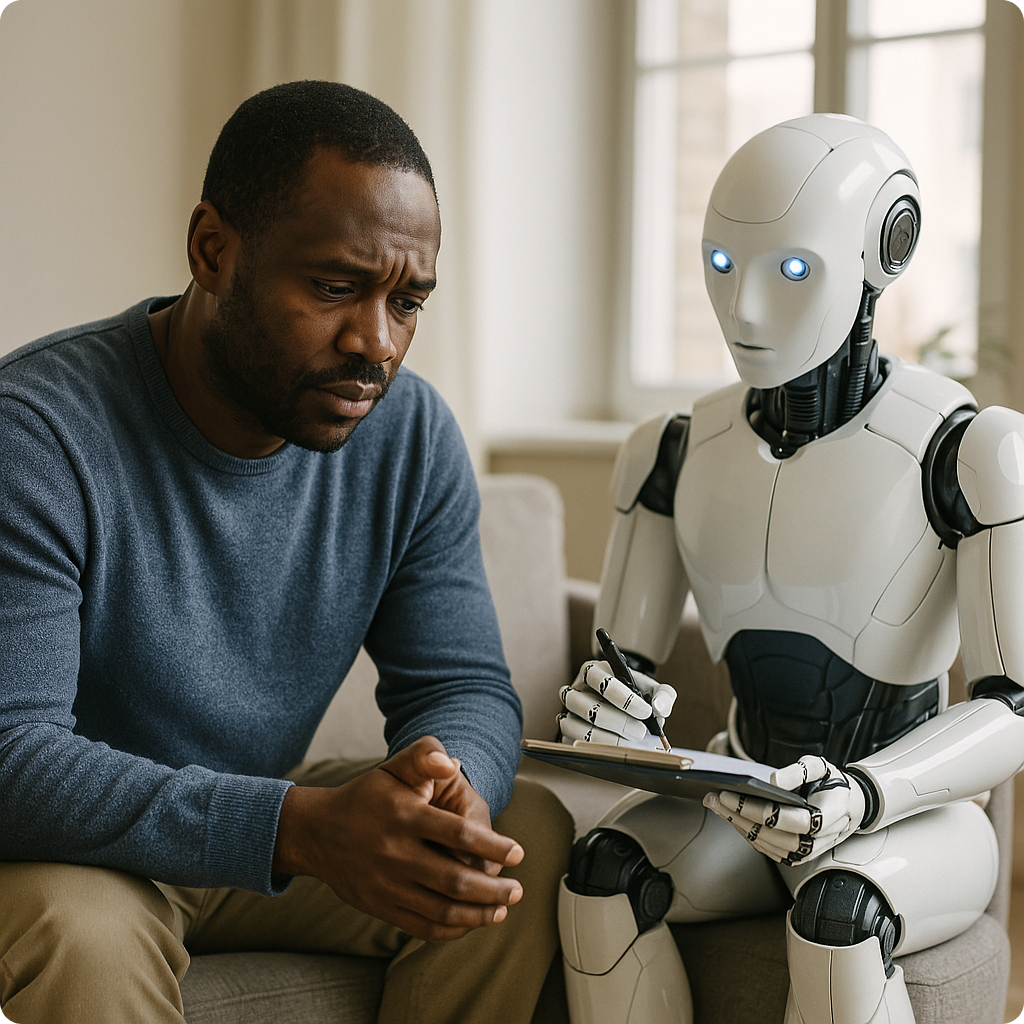Can AI Make Therapy More Human?

“AI won’t replace therapists—it’s here to empower them.” – Cole Smith
Let’s be real: Finding the right therapist can feel like a full-time job. Long waitlists. Limited access. Insurance headaches. And if you’re Black or from an underserved community, the struggle is even realer.
But here’s the twist—AI might actually help. Yep, the same technology that fuels TikTok algorithms and ChatGPT could be the key to making mental health care more accessible, more personal, and more equitable.
So, is AI in therapy the future? Or just another Silicon Valley experiment waiting to go wrong?
The Mental Health Gap Is Too Big to Ignore
Right now, millions of people need therapy but can’t get it. Rural areas have almost no therapists. City clinics are overloaded. And let’s not even start on affordability.
Only 1 in 3 Black adults who need mental health care actually receive it.
More than half of U.S. counties don’t even have a single psychiatrist.
Finding a culturally competent therapist? Like searching for a unicorn.
That’s where AI-driven platforms like Opal AI come in—not to replace therapists, but to bridge the gap.
So, How Can AI Help?
A 24/7 Mental Health Companion
Most of life’s struggles don’t happen between 9 and 5. AI-powered tools like Opal function as an intelligent journal, helping users track their emotions, process their thoughts, and get guidance before their next session.
Breaking Down Barriers
Therapy shouldn't be a luxury. AI can help those in rural communities, single parents, shift workers, and people with limited access get support when they need it.
Enhancing (Not Replacing) The Human Connection
At the heart of healing is trust. The best AI tools aren’t trying to replace therapists; they’re helping therapists better understand their clients and personalize care.
But What About The Risks?
Bias in Algorithms: AI is only as good as the data it’s trained on. If it’s pulling from systems that have historically overlooked Black and Brown communities, we need to call that out and fix it.
Privacy & Data Protection: AI tools must be HIPAA-compliant and transparent. If a platform isn’t crystal clear about how they protect patient data, walk away.
How You Can Take Action
Try It for Yourself → Opal AI offers a free chat tool that anyone can use at chat.heyopal.com. No account needed. No hassle.
Therapists, Stay Informed → If you’re a clinician, don’t sleep on AI. Research it. Ask the tough questions. And if you’re curious, Opal AI is offering 40% off the first year + 1 month free with the code PODCAST at heyopal.com.
Keep the Conversation Going → What do you think? Can AI make therapy better, or is it just another tech trend? Reply and let’s talk.
Final Thoughts
The future of mental health isn’t about choosing human vs. AI—it’s about human + AI.
If done right, this tech could be a game-changer for people who’ve been left out of the system for too long. But it’s up to us to make sure it serves the people who need it most.
What do you think? Hit reply, share this with someone who needs to hear it, and let’s make sure our voices shape the future of mental health.
